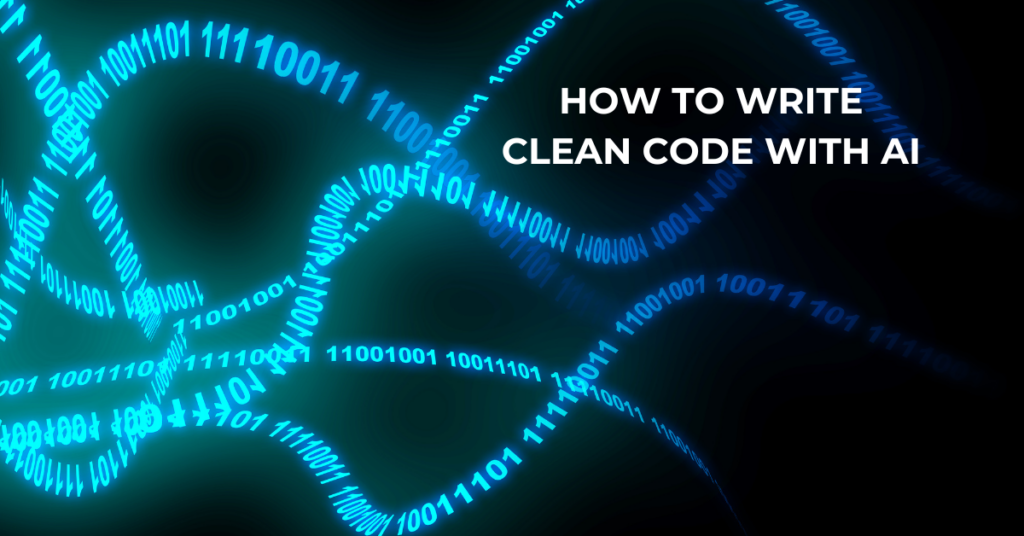Coding Smarter, Not Harder: Unleashing the Potential of AI for Clean Code

- How Can Artificial Intelligence Improve the Cleanliness of Code?
- What Challenges Should Coding Professionals be Aware of When Implementing AI for Clean Code?
- What are the Best Practices for Integrating AI Into the Coding Process?
- Is AI Capable of Performing Automated Code Reviews and Suggesting Improvements?
- Which AI-Powered Tools are Currently Available for Enhancing Code Quality?
The quest for excellence in software development has led professionals to seek innovative solutions for enhancing code quality. Among these solutions, AI has emerged as a game-changer, offering unprecedented automated code analysis and improvement capabilities. How to write clean code is a question that resonates with many developers, and AI is providing some compelling answers. Furthermore, by integrating AI into coding practices, developers can not only refine their code but also streamline their workflows, thus significantly boosting software development efficiency.
How Can Artificial Intelligence Improve the Cleanliness of Code?
1. AI in Coding: A Revolutionary Approach
AI in coding has transformed the software development landscape by introducing automated tools that can analyze code in real-time. Additionally, these tools provide actionable feedback on how to write clean code, making it easier for developers to adhere to best practices for clean code.
2. Leveraging Artificial Intelligence for Enhanced Code Quality
Artificial intelligence plays a crucial role in code quality improvement by identifying patterns and anomalies that human reviewers might overlook. Moreover, this capability ensures that the code meets functional requirements and adheres to high standards.
3. The Impact of Automated Code Analysis

Automated code analysis, powered by AI, offers a systematic approach to scrutinizing code. Consequently, this process helps identify potential issues early in the development cycle when figuring out how to write clean code, thus preventing costly fixes later.
4. Adopting Best Practices for Clean Code
AI tools are instrumental in promoting best practices when the question of how to write clean code arises among developers. Furthermore, by providing real-time suggestions and corrections, these tools help maintain a consistent coding standard across projects.
5. Boosting Software Development Efficiency
Lastly, integrating AI in coding workflows significantly enhances software development efficiency. Moreover, by automating routine tasks, developers can focus on more complex aspects of software development rather than worrying about how to write clean code, thus delivering higher-quality products in shorter timeframes.
What Challenges Should Coding Professionals be Aware of When Implementing AI for Clean Code?
1. Understanding the Limitations of AI in Coding
It is crucial for developers to recognize that AI in coding, while powerful, has its limitations. Additionally, AI algorithms require large data sets to learn from, and they might not always understand the nuances of human logic or the specific intentions behind certain code structures.
2. Navigating the Complexity of Artificial Intelligence
The complexity of artificial intelligence itself can be daunting. Moreover, implementing AI solutions requires a solid understanding of both the technology and the specific coding problems it aims to solve.
3. Ensuring Code Quality Improvement
While AI can significantly aid in code quality improvement, it is essential to remember that it should complement, not replace, human oversight. Furthermore, developers must remain vigilant and review AI suggestions critically.
4. Balancing Automated Code Analysis With Human Insight
Automated code analysis can streamline the review process, but it is vital to balance this with human insight. Additionally, AI tools might not catch every potential issue, especially those related to the broader context or future scalability of how to write clean code.
5. Adhering to Best Practices for Clean Code
Finally, despite the advancements in AI, adhering to best practices for clean code remains paramount. Moreover, AI tools should be used to enforce these practices, not as a crutch to bypass learning them.
ALSO READ: What is Coding?
What are the Best Practices for Integrating AI Into the Coding Process?

1. Establish Clear Objectives for AI Integration
When integrating AI into coding, establish clear objectives. Additionally, understanding what you aim to achieve with AI in coding—be it improving code quality, automating repetitive tasks, or enhancing software development efficiency—will guide the selection of tools and approaches to guide you on how to write clean code using AI.
2. Select the Right Tools for Your Needs
The choice of AI tools should be aligned with your project’s specific requirements. Moreover, not all AI-powered tools are created equal; some excel at automated code analysis, while others shine in code quality improvement. Therefore, selecting the right tools is essential for maximizing the benefits of artificial intelligence in your coding process.
3. Train Your Team on AI Tools and Best Practices
For AI integration to be successful, training your team is imperative. Furthermore, understanding how to use AI tools effectively and knowing the best practices for clean code are crucial steps in leveraging AI for software development efficiency.
4. Implement Continuous Learning and Improvement
AI in coding is not a set-it-and-forget-it solution. Additionally, as AI technologies evolve, so too should your coding practices. Hence, implementing a culture of continuous learning and improvement is vital for staying ahead in the fast-paced world of software development.
5. Monitor and Evaluate AI’s Impact
Monitoring and evaluating the impact of AI on your coding process is essential. Moreover, this involves not just looking at immediate gains in code quality or efficiency but also assessing long-term effects on team workflows and software development practices.
Is AI Capable of Performing Automated Code Reviews and Suggesting Improvements?
AI has indeed become capable of performing automated code reviews and suggesting improvements. Firstly, AI in coding can analyze vast amounts of code much faster than a human, identifying patterns and anomalies that may not be immediately obvious. Also, artificial intelligence can suggest improvements based on best practices for clean code learned from analyzing various sources. This capability not only enhances code quality improvement but also contributes significantly to software development efficiency by saving time and resources.
ALSO READ: What is Object-Oriented Programming and Why is it Significant in the Coding World?
Which AI-Powered Tools are Currently Available for Enhancing Code Quality?
1. Codeium
Codeium is renowned for its ability to offer AI-driven insights into code quality improvement. Moreover, leveraging advanced algorithms assists developers in refining their code, ensuring adherence to best practices for clean code.
2. GitHub Copilot
GitHub Copilot, powered by OpenAI’s Codex, provides real-time code suggestions, significantly enhancing software development efficiency. It is like having a pair of extra eyes reviewing the code and offering suggestions for improvement on the fly.
3. DeepCodeAI
DeepCodeAI offers automated code analysis by scanning codebases for potential issues. Additionally, it uses AI to learn from millions of code repositories, making it an invaluable tool for developers aiming to improve their code quality.
4. Sourcery
Sourcery focuses on refactoring code for better readability and efficiency. Moreover, it integrates seamlessly into the development environment, providing instant feedback and suggestions for clean code best practices.
5. Amazon CodeWhisperer
Amazon’s CodeWhisperer transforms real-time coding by providing tailored snippets to full functions from your comments and existing code. It simplifies coding with natural language to bash command translations and CLI completions. The free Individual Tier offers code suggestions, reference checks, security scans, and conversational coding via Amazon Q, thus streamlining the coding process.
ALSO READ: Learn Coding: 8 Effective Steps to Kick-Start Your Career
Integrating AI into the coding process offers a promising avenue for enhancing code quality and software development efficiency. Moreover, by adhering to best practices, leveraging the capabilities of AI for automated code reviews, and utilizing the right AI-powered tools, developers can significantly improve their coding workflows. For those looking to deepen their understanding and skills in this area and want to learn how to write clean code, Emeritus’ coding courses provide an excellent opportunity to learn from industry experts. Hence, embracing AI for code quality improvement is not just about keeping pace with technological advancements but about setting new standards for excellence in software development.
Write to us at content@emeritus.org






